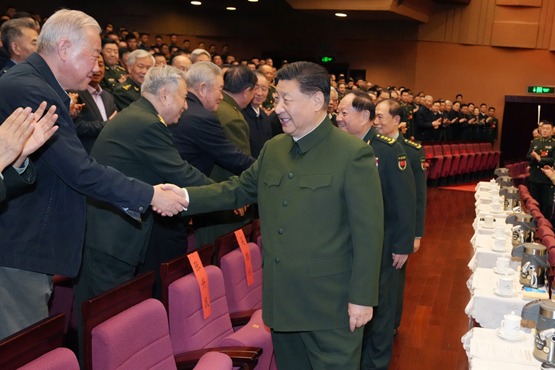Xi's re-election as president offers strong, stable leadership

Veteran politicians and academics across the world hailed Xi Jinping's re-election as China's president, saying big nations need strong leadership.
Xi was elected president by a unanimous vote on Saturday at a session of the 13th National People's Congress, China's top legislature.
Former French Prime Minister Jean-Pierre Raffarin said that Xi's credentials during his previous term helped him unsurprisingly win re-election.
"This is not only because we need to have a strong China for global growth, but also to lead the Belt and Road Initiative to support multilateralism.
"I believe big nations need strong leadership at home and abroad," Raffarin said.
Zhiqun Zhu, a professor of political science and international relations at Bucknell University in Pennsylvania, said a strong and stable leadership is desirable as China continues to shore up its economy, combat corruption, clean up the environment and handle external challenges.
The vote ensures the continuity of stability at this critical time when China is working toward achieving the Two Centenary Goals, said Robert Kagiri, a senior lecturer at the Institute of Diplomacy and International Studies at the University of Nairobi in Kenya.
This ensures that Xi Jinping Thought on Socialism with Chinese Characteristics for a New Era will be successfully achieved and promoted on the global stage to give an alternative model of governance.
Christopher Bovis, a professor of European and international business law at the University of Hull in the United Kingdom, said President Xi's re-election puts China on a consistent and predictable path of development and international engagement. Consistency is crucial when it comes to the Belt and Road Initiative, because infrastructure projects along the initiative involve decades of investment, construction and operation.
Ivona Ladjevac, head of the regional center for the Belt and Road Initiative at the Institute of International Politics and Economics in Belgrade, Serbia, said Xi's re-election is rooted in his vision of the initiative that will make China more influential on the global stage.
Jon Taylor, professor chair of political science at the University of St. Thomas in Houston, said that with the re-election of Xi, the election of Wang Qishan as vice-president, and the election of other high-ranking officials, Xi now has the ability to form a "dream team" to deal with a host of domestic and foreign challenges facing China.
"I fully expect that Xi and his team will continue to pursue the deepening of economic, political, and social reforms, ramp up what has already been a relentless pursuit of anti-corruption efforts by going after 'tigers and flies' no matter how high they are within the Party and the State, enhance and increase China's global diplomatic and military role, and deepen the rule of law and law-based governance," said Taylor.
Alan Barrell, entrepreneur in residence at the University of Cambridge's Judge Business School, said Xi is well liked internationally.
His commitment on China building a technology-driven economy, its further reform and opening up, and anti-corruption measures are all very important for China's future development. This path of development has significant implications for the international business community and the advancement of scientific development globally.
Bernard Dewit, chairman of the Belgian-Chinese Chamber of Commerce, said the overwhelming support Xi got is a good sign for business circles, because stability will prevail and the opening up policy will continue.
Gordon Houlden, director of the China Institute at the University of Alberta in Canada, said: "President Xi's re-election will provide continuity in economic and trade policies, and to allow the president to focus on his signature Belt and Road project and the anti-corruption drive."





































